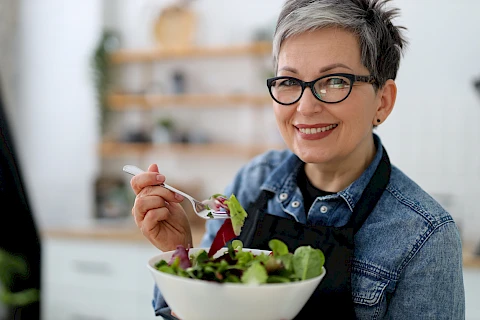
As we navigate our golden years, we face several physical and mental health challenges. These include an increased risk for senior anxiety. Anxiety is not a normal part of aging, and should not be treated as such. A few simple changes, including altering dietary choices, can go a long way toward decreasing symptoms.
The Science Behind Food and Anxiety
Scientific research has shown a definitive link between the food we consume and our mental well-being, including anxiety. Foods can impact our mood, stress levels, and anxiety by altering the biochemistry of our brains. Some foods have been found to trigger the release of neurotransmitters such as serotonin and dopamine, which help regulate our mood. However, this link is often more intricate and significant in seniors due to age-related metabolism and nutrient absorption changes.
Foods and Dietary Habits to Help Reduce Anxiety
Several foods have shown potential in alleviating anxiety symptoms. Omega-3 fatty acids, found in fish like salmon and tuna, help to reduce anxiety by boosting brain health. Leafy greens such as spinach and Swiss chard are rich in magnesium, which lessen anxiety symptoms. Other foods like turkey, eggs, and avocados, rich in B vitamins and tryptophan, can also help to stimulate the production of mood-regulating neurotransmitters.
No less important are dietary habits and meal planning. Regular, balanced meals can help to stabilize blood sugar levels, preventing mood swings and associated anxiety. Staying well hydrated, reducing caffeine and alcohol, and ensuring a good intake of probiotics for gut health can also lessen anxiety levels.
Foods That Can Increase Anxiety
On the flip side, certain foods can contribute to elevated anxiety levels. Caffeine, for instance, can cause nervousness and jitteriness, worsening anxiety symptoms. Similarly, foods high in sugar, such as sodas and candies, can lead to spikes and crashes in blood sugar levels, causing mood fluctuations and increased anxiety. Highly processed foods and those high in trans fats can also negatively affect mental health. Therefore, seniors should limit their intake of such foods for better anxiety control.
Short-Term and Long-Term Impact of Foods on Anxiety
Food impacts anxiety not just in the short-term, but also in the long run. Consuming anxiety-reducing foods can provide immediate relief by boosting mood-regulating neurotransmitters. In the long term, maintaining a consistent and balanced diet can lead to sustained improvements in mood and reduced anxiety levels. While food can play a significant role in managing anxiety, consistency is key. A single meal won't dramatically shift one's mental health; however, a regular healthy eating pattern can have profound effects over time.
Our golden years should be filled with enjoyment and relaxation. Understanding the connection between food and anxiety can play a vital role in achieving a less anxious, more fulfilling life.
Decrease Anxiety With Help at Home for Seniors From Senior Helpers Greater Cincinnati
If you live in Hamilton, Fairfield, Middletown, Cincinnati, or Milford and are seeking support for senior care, please do not hesitate to reach out to us at Senior Helpers Greater Cincinnati. Our team of compassionate professionals is here to help with various in-home care solutions, from assistance with daily self-care tasks to alleviating senior anxiety about being able to care for themselves to assistance with meal preparation.